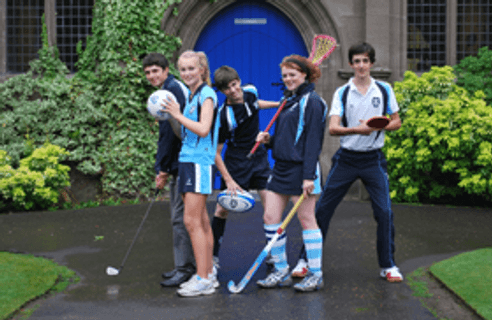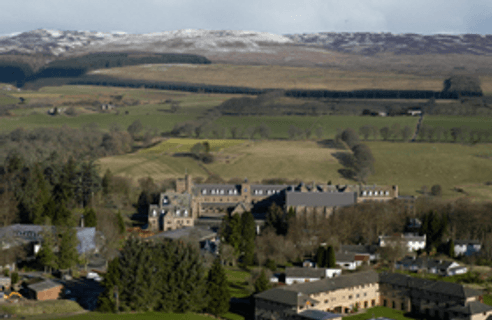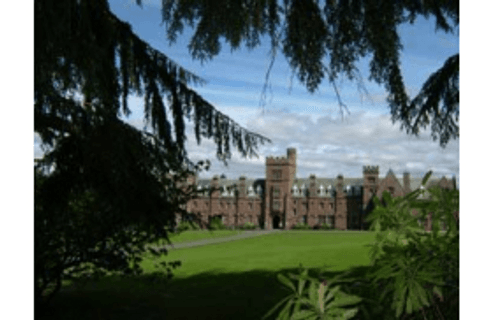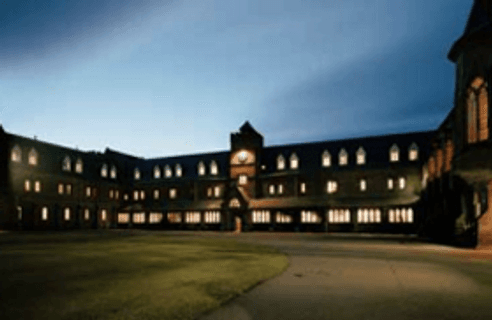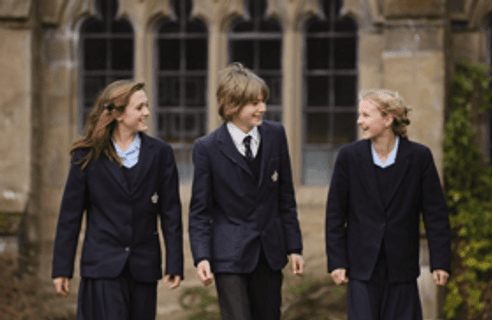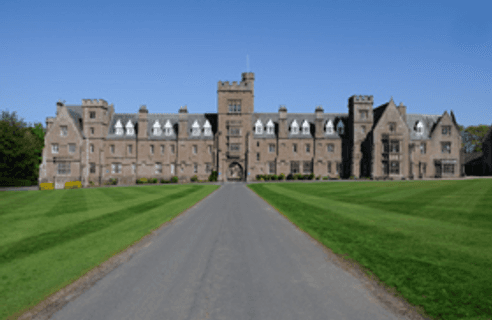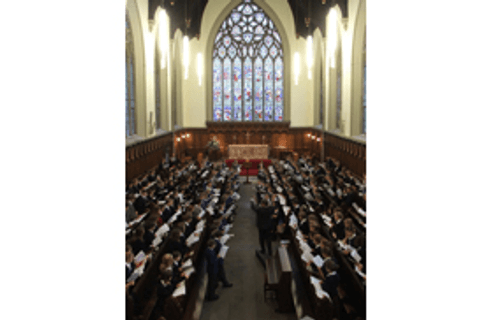Director of Development
Glenalmond College
Perth and Kinross
- Quick apply
- Expired
- Job type:
- Full Time, Permanent
- Apply by:
- 27 August 2020
Job overview
Key Function
- to develop the best possible relationships with former pupils [Old Glenalmonds], current and former members of staff, and current and past parents;
- to support the work of the College by increasing the significant and reliable stream of income from giving.
Line Management
Reports to the Warden
Responsible for Alumni Relations Officer
Main Duties
1. Defining the College’s strategic direction for Engagement and Fundraising. This requires articulation of a narrative, reforming structures, and communications to ensure that this is consistently delivered, including:
- Developing overarching planning for all existing fundraising within Glenalmond College, and developing an ongoing Engagement and Development Strategy, to support the College’s future development plans, which will include annual, legacy and major gifts, targeted appropriately to all donor constituencies, including current and former parents, alumni and businesses, &c.
- Ensuring that fundraising achieves its strategic objectives and specific income targets, as agreed with the Warden.
2. Delivering the College’s overarching Engagement and Development Strategy, including the creation of a culture of support and donor stewardship and the creation of a culture of support.
- Developing the case for support, working with the Warden, the Bursar, and the Governing Council, and key supporters of Glenalmond on development planning, including: cultivating relationships with all donors, and building donor numbers
- preparing compelling and up-to-date literature and other materials (e.g. digital media) to support fundraising and engagement
- assisting school staff on the development of projects and initiatives in support of the College’s master Development Plan
- Creating a communication plan to articulate the aims and purpose of development for alumni and other supporters of the College to achieve an effective level of contact with the Glenalmond’s wider community.
- Creating and managing promotional material, in print and on-line, for the College’s Development.
- Developing, planning and implementing a robust stewardship programme which enables a culture of donor engagement and affinity through building relationships with prospective donors at all levels, heightening the interest and involvement of donors with the College, and representing the College appropriately.
- Thanking and recognising donors for their contribution, applying a range of techniques in relation to size of donation, with strong emphasis being placed on tailored contact with major donors, and ensuring their gifts are used well, in the way that donors wish, and reporting to donors on what has been accomplished with their gift.
- Ensuring effective existing relationships with donors and sponsors.
3. Leadership and management of the Development Office
- Directing, leading and managing the day-to-day operations of the team to support an extending programme of engagement through appropriately targeted events and communications.
- Directing, leading and managing the Development team to provide logistical support for the Development Committee in the fulfilment of its objectives. Working closely with the Development Committee to agree those objectives and effect a gradually extending programme of engagement through events and communications.
- Communicating the Development strategy effectively both within and outside the College, and ensuring the existing College community is fully engaged with activities.
- Financial and Office management:
- managing the Development budget, in conjunction with the Warden and Bursar
- contributing to the work of the Development Committee as it considers the management and investment of funds raised
- supervising accurate donor, gift and recipient record keeping, and compiling and managing reports about donations and donors
- working with the Bursar to prepare reports on progress and financial planning, and, where appropriate, presenting them to the Governing Council and other audiences.
- providing other informative management information as required.
4. Alumni Relations and Engagement
Directing, leading and managing the Development team to provide logistical support for the Old Glenalmond Club and Friends of Glenalmond in the fulfilment of its objectives.
Working closely with the officers and committee of the Old Glenalmond Club and Friends of Glenalmond to agree those objectives and effect a well-publicised and gradually extending programme of engagement, through communications and an annual programme of events.
Supporting the creation and maintenance of an alumni networking programme that can offer careers guidance to members and current pupils.
Seeking out information about alumni from contacts, archives and social media channels and engaging effectively with these as part of the Glenalmond community.
Enhancing existing and establishing new high-profile events in College, across Britain, and around the world, to enhance both ‘friendraising’ and fundraising.
5 . Fundraising
- Major Gifts: securing major gifts in support of the College’s Development strategy through:
- coordinating the work of the Warden, the Governing Council, and the Development Committee to establish an ethos and rationale for giving
- researching potential major donors.
- creating suitable events for cultivating productive relationships with potential donors, including through visits to potential donors.
- managing relationships with each prospect to the point where a donation may be secured.
- Leading and delivering major fundraising campaigns, by identifying description, needs, outcome, impact, the costing of objectives and process, establishing the case for support, effective timeline, and key milestones.
- Other organisations: Sustaining existing and further growing donations from other existing sponsors and increasing applications to grant-making trusts and other sympathetic organisations
- Committed/Regular giving: Reinforcing and growing existing giving and developing further initiatives to achieve, beneath the major gift level, large numbers of lower value gifts, preferably as regular commitments.
- Legacies: Creating and managing a legacy marketing approach to achieve an increasing income stream through legacies, including:
- preparing suitable legacy marketing materials;
- presenting the legacy proposition to potential prospects;
- managing relationships with legators to encourage increased pledges.
- Endowment Fund: Creating and managing an endowment fundraising approach to complement these other fundraising approaches.
- Other: Providing advice on all types of tax-efficient giving and managing tax reclamation efficiently.
6. Research and data management
- Establishing efficient donor research and data analysis processes through which to identify donor patterns.
- Undertaking prospect research by developing networks, identifying whom to meet and, by wealth screening, identifying affinity and productive relationships between potential donors and the College.
7. General responsibilities
- Ensuring that data-management is effective and complies with relevant legislation, e.g. the GDPR.
- Maintaining close links with the College, its staff and its supporters through attendance at all appropriate leadership, Development Committee, and Governing Council meetings as required, regular contact with teachers and support staff, and to maintain co-operation by supporting College events where possible
- Representing the College among national professional fundraising organisations.
- Undertaking any other duty as reasonably requested by the Warden.
8. Revisions to the Job Description
According to the development and requirements of the College, Job Descriptions will need to be revised and updated periodically, after consultation with the post holder.
Other Duties
The post-holder is responsible for safeguarding and promoting the welfare of children and young persons for whom they are responsible or with whom they come into contact. They must adhere to and ensure compliance with the College’s Safeguarding and Child Protection Policy at all times. If, in the course of carrying out their duties, the post-holder becomes aware of any actual or potential risks to the safety or welfare of children in the College, the postholder must report these concerns to the Designated Safeguarding Lead.
The post-holder is responsible for actively seeking to implement the Glenalmond College Health and Safety Policy in relation to the duties of the post, and at all times give due regard to the health and safety of both self and others when carrying out duties.
The post-holder is responsible for actively seeking to implement Glenalmond College’s Equality and Dignity at Work Policy and the objective to promote equality of opportunity in relation to the duties of the post.
Closing Date: Friday 28th August at 13:00
About Glenalmond College
The College is built on the south bank of the River Almond, from the north bank of which rise the Grampians. It is about 50 miles north of Edinburgh and 10 miles from both Perth and Crieff.
The College Buildings, grouped round a cloistered quadrangle, comprise the Chapel, Hall, Library, houserooms and studies, study bedrooms, classrooms. A separate block houses additional classrooms, a purpose built Science Centre and a Theatre. A few yards away are the Art School and the Design and Technology Centre. Next to these are the Music practise rooms.
The Sports Complex consists of squash courts, a strength and conditioning suite, an indoor sports hall and a heated indoor swimming pool, fitness suite and an indoor .22 range.
Houses. There are 4 houses for boys and 3 houses for girls. The organisation of all the Houses is the same, each having accommodation for resident Housestaff. Senior boys and girls have study-bedrooms or studies of their own.
Religion. The College is an Episcopalian foundation and has a splendid Chapel. However all denominations are welcomed.
Admission. Boys and girls enter the College between the ages of 13 and 14 via the Common Entrance Examination or Entrance Scholarship papers. Pupils leaving Primary Schools may qualify by tests and examinations for junior entry at rising 12. Girls and boys may also qualify for entry into the Lower Sixth, or at other points during their school career.
Curriculum. In the first 3 years all pupils take a wide range of subjects up to the GCSE with English, Mathematics, a modern language and the 3 Sciences as core subjects. Greek, Spanish, German, Art, Drama, Music, Design/Technology, History, Geography, Latin, Computer Science, Physical Education are optional subjects to GCSE and beyond. Each pupil is guided by a tutor.
The Sixth Form provides specialist courses in Arts and Sciences leading to GCE A-Level and also a selection of SQA Higher Levels. Lectures from outside speakers on social, economic and cultural subjects of topical interest take place regularly.
Economics, Business Studies, Theatre Studies, History of Art, and Politics are now fully established in the Sixth Form.
Careers. Over 90% of pupils qualify for entry to university; some go direct to professional careers, industry, the Services, etc. Great emphasis is placed on careers guidance: careers talks, visits and advice along with a well-stocked careers room assist pupils in their choice. Most pupils take careers aptitude tests at age 16.
Art, Drama and Music. Music plays a central part in the life of the school: there is an Orchestra as well as smaller String, Woodwind and Brass Groups. A large Choir and Choral Society perform at the College, in Perth and in Edinburgh. The Concert Society arranges recitals and concerts at the College; frequent visits are made to concerts in Perth and elsewhere. There is a Pipe Band.
The Drama and Art departments flourish, in conjunction with the well-established Design and Technology Centre. Art, Music as well as Design/Technology form part of the normal curriculum and can be taken at GCSE and A level.
Games and Recreations. Rugby, Hockey and Lacrosse are played in the Michaelmas Term and there is a wide variety of activities to choose from in the Lent Term including Football. In Summer Term the sports are Cricket, Athletics, Shooting, Tennis and Golf. Shooting on the Miniature Ranges takes place during the two winter terms. There is a large indoor heated Swimming Pool and pupils are trained in personal survival and Lifesaving. There are also Squash Courts, Tennis Courts, a private Golf Course, and two full-size all-weather pitches for hockey and tennis.
During the Summer, pupils have the opportunity to explore the hills and the neighbouring countryside.
Combined Cadet Force. There is a contingent of the Combined Cadet Force which has strong links with the Armed Forces and the Royal Regiment of Scotland (Black Watch Battalion) in particular. The ceremonial dress, as worn by the Pipe Band for example, is the Highland dress with the Murray of Atholl tartan.
Army and Air sections, with a Pre-Service section for Junior Pupils, are organised on the basis of the Duke of Edinburgh’s Award. Shooting and Adventure Training figure prominently; pupils may also be engaged on Conservation, Community Service Work or Mountain Awareness Group.
Please note that you are wholly responsible for fact checking in respect of the information provided by schools. Please also check for the latest visa and work permit requirements that may apply. Tes is not responsible for the content of advertisements or the policies adopted by advertising schools. Tes asks that all schools follow Tes' Fair Recruitment Policy.


